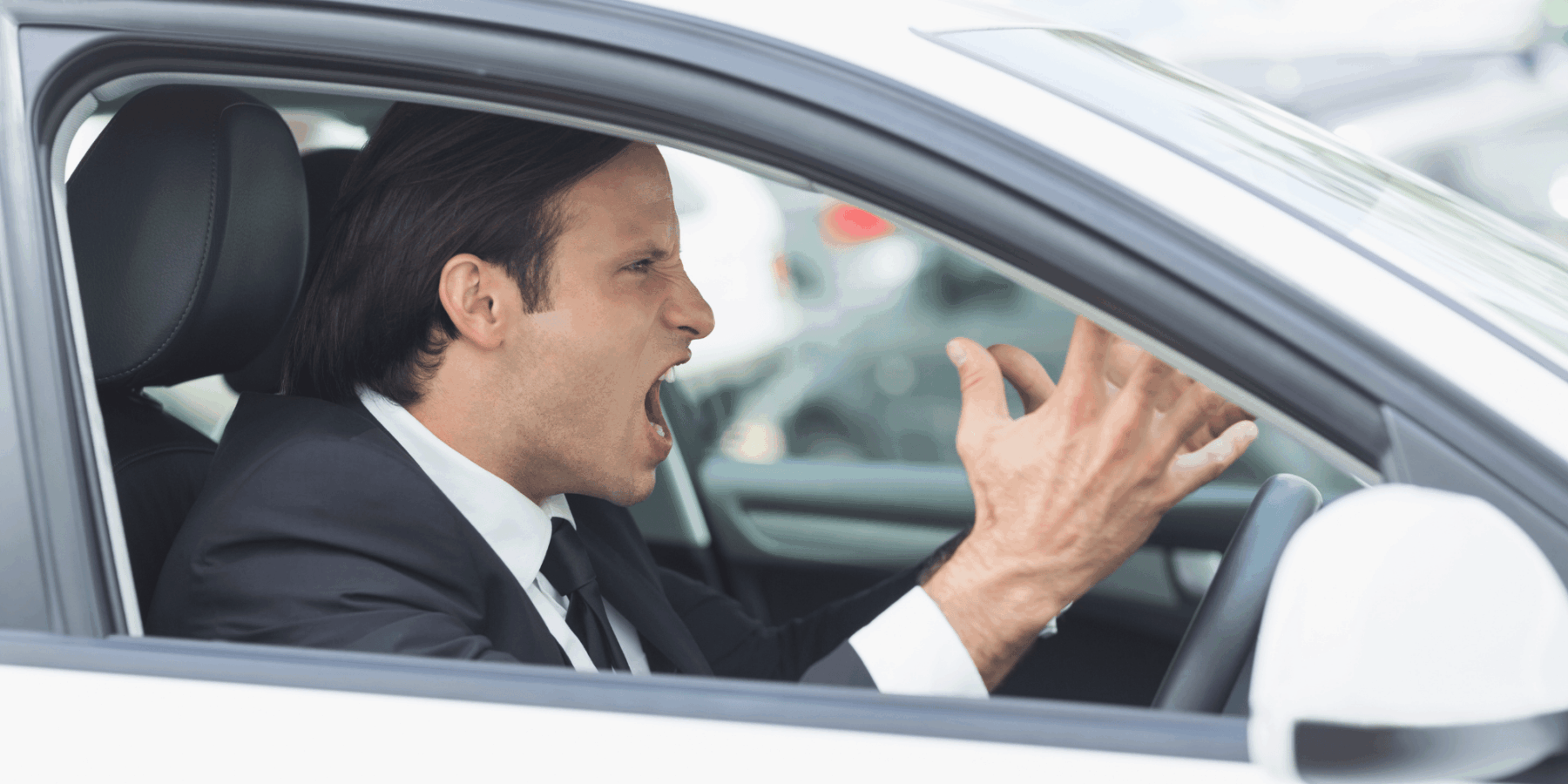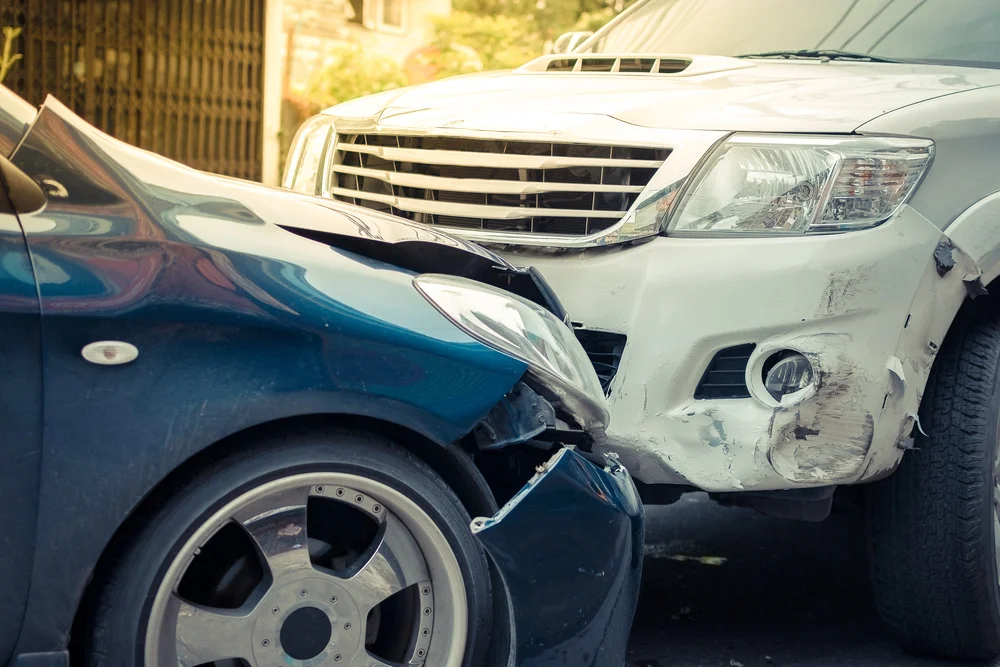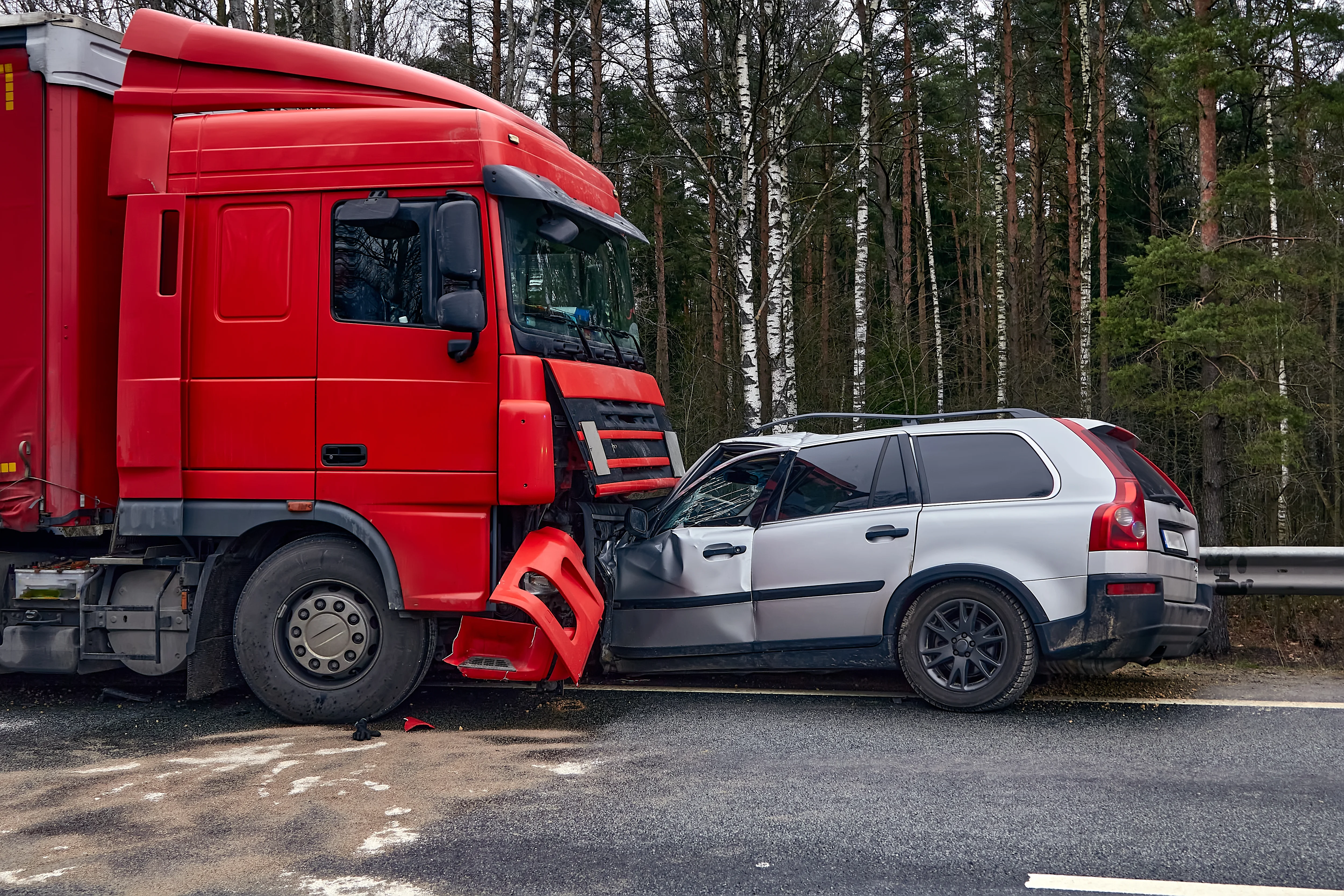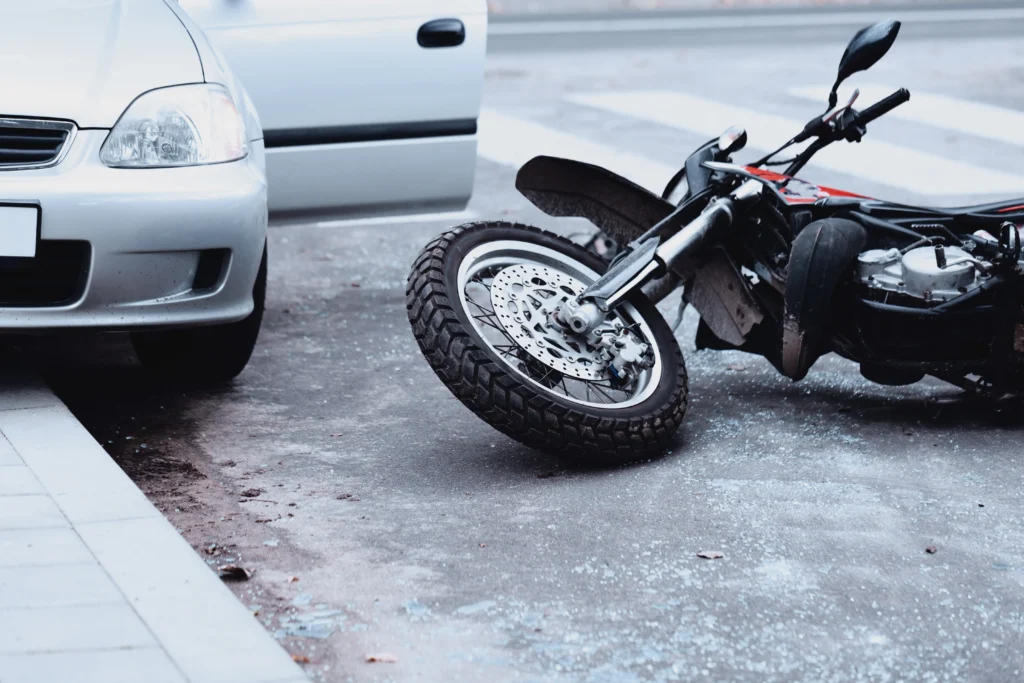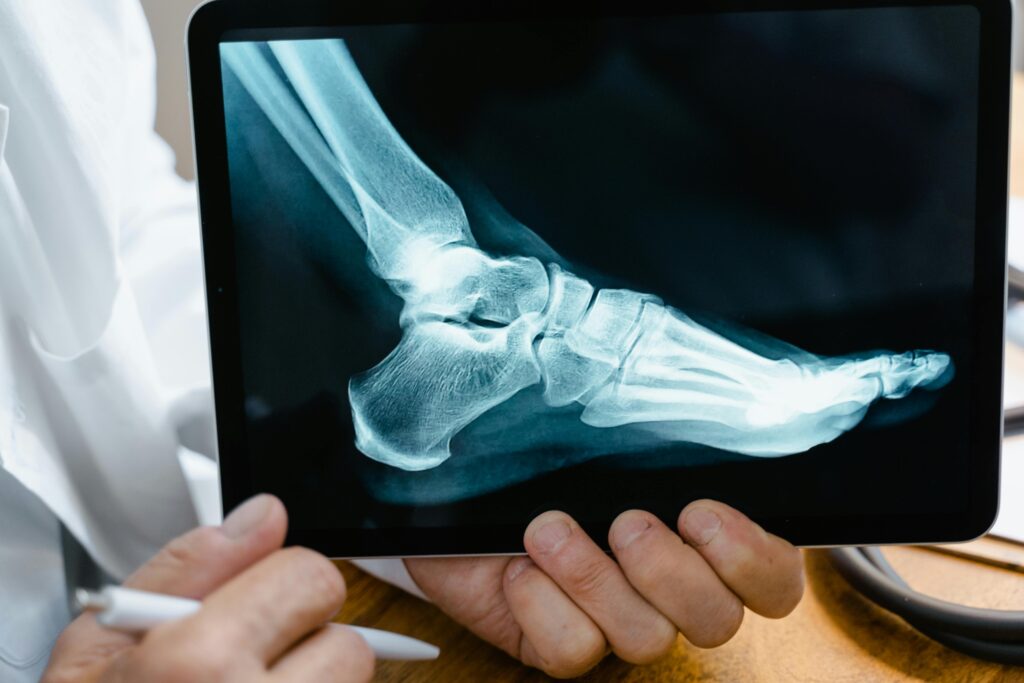Fighting for Injured Riders in Colorado Road Rage Motorcycle Accidents
Incidents of road rage involving motorcyclists in Colorado have been on the rise on the active roads such as I-25, Highway 93, and US-36. Aggressive driving, reckless tailgating, and unsafe lane changes often lead to situations that escalate into confrontations and can be dangerous to bikers. Motorcyclists are at serious risk on the road. Even the National Highway Traffic Safety Administration has reported aggressive drivers contribute to the number of fatal motorcycle crashes that grow each year across the United States.
Motorcyclists travelling through high-traffic areas, just like Denver, Colorado Springs, and scenic foothills are especially susceptible. Motorcyclicsts do not have the safety of steel shielding like vehicle passenger. If a driver with “road rage” pushes the motorcylist off the road or strikes them with intention, that situation could lead to severe trauma. Injuries extent to spinal cord injuries, traumatic brain injury, and potential fatalities. Those caused by drivers with rage are the most horrifying motorcycle wrecks, that can change lives in the matter of a seconds.
At Levine Law, we pursue full accountability from aggressive drivers across Colorado. With a proven history of multi-million dollar recoveries for injured riders, our team takes immediate action to preserve evidence and build a case that delivers results. We help clients recover medical costs, lost income, pain and suffering, and more.
If you or a loved one were involved in an incident with an aggressive driver: you are not alone. Colorado road rage motorcycle accidents are occurring frequently in communities from Fort Collins to Castle Rock. To learn more about the dangerous ramifications and effects of aggressive driving on crash rates, review the injury data from the CDC on road rage.
Contact our Colorado road rage motorcycle crash legal team today at 303-835-4910. We are ready to protect your rights and pursue the justice you deserve.
Proving Liability in Colorado Road Rage Motorcycle Collisions Near I-70 and the Front Range
Building a strong claim after a Colorado road rage motorcycle crash requires more than just medical records and a police report. These cases often involve unique legal challenges, including the need to prove intentional or reckless conduct. At Levine Law, we take a multi-layered approach to proving liability that accounts for every detail of the incident and the driver’s behavior. From aggressive lane changes to hostile gestures, we gather evidence that shows your crash was not just an accident but a direct result of road rage.
Aggressive driving near mountain passes like Vail and along urban corridors such as Federal Boulevard in Denver has become increasingly dangerous for motorcyclists. According to AAA Foundation for Traffic Safety, nearly 80 percent of drivers admit to aggressive behavior in the past month. When this hostility turns into a collision, our legal team takes swift and decisive action.
Documenting Aggressive Driving Patterns Before the Crash Occurred
It is essential to show the full pattern of behavior that led to the crash, not just the moment of impact.
Many road rage motorcycle accidents begin with tailgating, lane-blocking, or shouting. These early actions reveal the mindset of the aggressive driver and help paint a complete picture of how the crash unfolded. We gather statements from other drivers and nearby witnesses who saw the aggressive behavior escalate before the wreck occurred.
Even seemingly minor details, like a driver repeatedly honking or swerving at you, can become key to establishing intent. The Federal Motor Carrier Safety Administration outlines how patterns of hostility on the road contribute to injury severity and liability.
Interviewing Witnesses From Local Crash Zones
People who saw what happened provide crucial testimony about the driver’s actions.
We contact witnesses in neighborhoods and roadways near the scene, such as Capitol Hill in Denver or the Cimarron Hills area near Colorado Springs. These firsthand accounts can confirm that the driver was speeding, weaving between lanes, or shouting profanities before the collision.
Witness statements carry significant weight with insurers and juries, especially when they confirm that your motorcycle was targeted by someone already behaving aggressively. We ensure these voices are preserved and included in your claim file.
Collecting Dashcam Footage From Other Drivers in Traffic
Other drivers often capture key moments that confirm a hostile driving pattern.
In high-traffic areas like the interchange of I-225 and I-70, many cars are equipped with dashboard cameras. We canvass nearby drivers and businesses to locate any footage that captured the aggressive vehicle. These clips often show a full sequence of tailgating, cutting off the motorcycle, or forcing the rider off the road entirely.
Preserving Cell Phone Records and Social Media Clues After the Crash
Technology now plays a significant role in exposing road rage behavior and proving intent.
Many aggressive drivers post on social media while behind the wheel or just moments before the incident. We obtain court orders to preserve posts, photos, or live streams that show threatening behavior or intoxication. Text messages or voice notes sent before the crash may also contain evidence of hostility or recklessness.
Analyzing Location and Communication Logs for Driver Activity
We work with data analysts to interpret mobile activity that may indicate road rage.
By reviewing cell tower pings, Bluetooth usage, and GPS trails, we can confirm whether the driver was speeding, braking erratically, or communicating during the moments before impact. These logs may show a timeline of escalating behavior, which we use to reinforce your version of events.
This evidence is particularly important in crashes occurring near isolated stretches of highway like US-285, where fewer physical witnesses may be available. By using mobile forensics, we fill in the gaps with undeniable digital facts.
Examining Prior Traffic Violations and Road Rage Complaints
Some aggressive drivers have a history of violent or dangerous road behavior.
We investigate the at-fault driver’s public record to uncover past traffic citations, DUI arrests, or complaints filed for threatening behavior. If they have a known pattern of hostility on the road, it can significantly strengthen your case. This history may also support a demand for punitive damages under Colorado law.
The Colorado Judicial Branch provides public access to court records, which we use to build a thorough background on the responsible party. This step helps us argue for a higher recovery and demonstrates that the crash was not a one-time mistake.
Our firm builds every case with precision, urgency, and a commitment to full financial recovery. If a road rage incident led to your motorcycle crash anywhere in Colorado, call Levine Law at 303-835-4910 today to schedule your free consultation.
What Colorado Law Says About Road Rage in Motorcycle Crashes
Not every motorcycle accident in Colorado involves road rage, but when an angry or reckless driver targets a rider, the legal implications change drastically. Road rage motorcycle collisions often involve intentional actions or gross negligence. This behavior goes far beyond distracted driving or failing to yield. It reflects a conscious disregard for the safety of others.
Under Colorado law, if a driver threatens, intimidates, or intentionally causes harm to a motorcyclist, their actions may rise to the level of assault or vehicular crimes. These cases require an aggressive legal response to hold the at-fault party fully accountable and to pursue both compensatory and punitive damages. A Department of Justice study on aggressive driving outlines how intentional conduct often leads to more severe injuries and legal consequences.
Our legal team builds road rage cases from the ground up, starting with evidence of aggressive behavior and moving toward a comprehensive claim that includes every aspect of the rider’s damages.
Understanding What Counts as Road Rage Under Colorado Traffic Law
Colorado defines aggressive driving as any behavior that endangers others through intentional actions.
Examples include brake-checking, swerving into a rider’s lane, tailgating, or using a vehicle to block or intimidate a motorcyclist. When a crash results, these behaviors can turn an injury claim into a civil and criminal matter. The more clearly we show that the driver acted with hostility, the more likely we are to pursue punitive damages.
According to the Colorado Department of Transportation, road rage incidents are on the rise, especially in high-density traffic corridors where emotions escalate quickly. These include sections of I-70 through Wheat Ridge and US-36 near Broomfield.
Identifying the Signs of a Road Rage Motorcycle Crash
Several key indicators help identify whether road rage contributed to a crash.
If the driver yelled at you, followed you after a traffic disagreement, or intentionally veered into your path, those are clear signs of aggressive behavior. Many riders report being chased, sideswiped, or forced onto the shoulder just before impact. These actions show that the driver was not merely careless but intentionally hostile.
Physical and verbal threats before a collision strengthen the case for road rage and shift liability more heavily onto the driver. In these situations, we work quickly to obtain witness statements and recordings that document what happened.
Understanding the Role of Criminal Charges in Civil Injury Claims
In some motorcycle road rage cases, the driver is arrested or cited for reckless driving or assault.
While criminal proceedings are separate from civil cases, the outcome of those charges can support your personal injury claim. If a prosecutor secures a guilty plea or conviction, it becomes powerful evidence of the driver’s intent. This adds weight to your civil case and can influence both settlement negotiations and trial outcomes.
The National Highway Traffic Safety Administration has documented how road rage incidents often overlap with criminal behavior, especially when motorcycles are involved.
Proving That the Road Rage Was the Direct Cause of the Motorcycle Crash
It is not enough to show that the driver was angry or speeding. We must prove that the aggressive behavior directly caused the crash.
Our team connects the dots by combining physical evidence, eyewitness reports, and digital data to show a timeline of behavior. For instance, we may demonstrate that the driver began tailgating near the US-85 corridor, then passed erratically, and finally struck the motorcycle near an exit ramp. This sequence builds a solid case for liability and damages.
Establishing Intent Through Verbal Threats or Escalating Behavior
When drivers scream, make obscene gestures, or follow riders after minor traffic conflicts, their intent becomes clear.
We collect dashcam audio, 911 recordings, and police bodycam footage to capture these threats. Witnesses who hear shouting or see gestures also strengthen the case. Drivers who escalate a situation and cause harm must face full accountability under Colorado personal injury law.
This type of evidence shows that the collision was avoidable and that the driver’s actions went far beyond ordinary negligence.
Linking Aggressive Maneuvers to the Final Impact
Every action leading up to the crash matters when proving a road rage claim.
We work with investigators to analyze braking patterns, lane positions, and impact points. These details help confirm that the driver’s aggression was the primary factor in the crash. Whether the rider was clipped while changing lanes or forced off a canyon road like Highway 119 near Nederland, the sequence of events tells the story.
Once we establish this timeline, we present it in a compelling format that proves fault and justifies the full scope of compensation.
Why Colorado Road Rage Puts Motorcyclists at Extreme Risk
Every motorcycle rider in Colorado knows the dangers of careless drivers, but few are prepared for the sudden violence of a road rage incident. When an angry driver turns a car into a weapon, the result can be a devastating crash that leaves a rider with life-changing injuries. Colorado road rage motorcycle accidents often happen in a split second, especially on high-speed corridors like I-25 through Denver or the Diagonal Highway between Boulder and Longmont.
Motorcyclists have no airbags, no crumple zones, and no room for error. According to the National Safety Council, road rage is not only a growing issue, it is also one of the leading contributors to traffic violence. When a reckless driver escalates to aggression, motorcycle riders suffer the consequences.
Levine Law holds aggressive drivers accountable and fights for riders across the Front Range and beyond.
How Aggressive Driving Turns Into Road Rage on Colorado Highways
Aggressive driving can quickly turn into road rage when tempers flare and patience disappears.
On congested routes like US-36, speeding, weaving, and tailgating are daily occurrences. When a motorcyclist changes lanes or merges safely, impatient drivers often take offense. They may respond by honking, yelling, or dangerously accelerating. That kind of escalation is not just rude, it is reckless and often illegal.
According to the Insurance Institute for Highway Safety, aggressive behavior frequently leads to more violent crashes. On a motorcycle, the margin for survival is already thin. One hostile action can push a rider into oncoming traffic or off the road entirely.
Tailgating and Lane Crowding Create Instant Hazards for Riders
Motorcyclists rely on space and visibility to stay safe. Aggressive drivers often take that away.
When a car tailgates a bike at highway speeds or swerves too close in the same lane, they leave no room for the rider to react. A sudden stop or gust of wind can send the rider sliding into traffic. These maneuvers are deliberate and dangerous, and they are common signs of road rage in Colorado motorcycle crashes.
We use witness statements, dashcam footage, and vehicle positioning to prove when a driver acted with hostility rather than carelessness.
Blocking, Chasing, or Cutting Off Riders Escalates Road Rage Fast
Many road rage crashes involve more than just speeding. They involve intimidation and pursuit.
Drivers who intentionally block a motorcycle’s path, chase a rider through traffic, or cut them off to prove a point are escalating beyond aggression. These are acts of control and retaliation. Whether the crash happens on a city street in Aurora or a highway ramp in Golden, these behaviors show a pattern that courts take seriously.
We move fast to preserve surveillance footage and witness accounts before they disappear.
Why Road Rage Crashes Cause More Severe Motorcycle Injuries
Unlike car crashes, motorcycle accidents from road rage often lead to catastrophic harm.
When a rider is forced off the road or slammed into by a hostile driver, the injuries are rarely minor. Broken bones, brain injuries, spinal damage, and internal trauma are common. Even low-speed crashes can throw a rider into guardrails, medians, or oncoming lanes. According to the American College of Surgeons, riders involved in aggressive driver crashes experience significantly higher rates of hospitalization and long-term disability.
Our legal team works with trauma physicians and rehabilitation providers to document every injury from the scene to recovery.
Ejection and Secondary Impact Raise the Stakes for Motorcyclists
Most riders in road rage crashes are thrown from their bikes.
Unlike car occupants, motorcyclists do not have a seatbelt or cabin to stay in. They often hit the pavement hard, followed by guardrails, curbs, or even other vehicles. These secondary impacts account for many of the worst injuries we see in Colorado road rage motorcycle claims.
We use scene photos, crash reconstructions, and helmet damage analysis to demonstrate the full scope of harm.
Emotional and Psychological Trauma Often Follows Road Rage Collisions
The mental toll of a violent crash does not fade when the bones heal.
Riders involved in road rage collisions often report anxiety, PTSD, and sleep disorders long after the crash. The fear of being targeted again or riding in traffic becomes overwhelming. We take these emotional injuries seriously and include them in every damage calculation.
If a road rage incident left you or a loved one injured in Colorado, call Levine Law today. We are ready to take action and hold aggressive drivers fully accountable for the damage they cause.
Take Action Now to Hold Colorado Road Rage Drivers Accountable
If you were injured in a Colorado road rage motorcycle accident, your future depends on what you do next. The medical bills, lost income, and emotional toll can feel overwhelming. But you do not have to face this alone. At Levine Law, we stand with riders who were targeted by reckless and hostile drivers on Colorado’s highways, city streets, and rural roads.
Our legal team fights aggressively to recover full compensation for your injuries, including medical expenses, pain and suffering, and long-term care needs. We have recovered millions for injured clients across the state, and we are ready to fight for you.
Whether your crash happened on I-25 through Denver, Highway 285 near Conifer, or in a smaller community like Erie or Lafayette, we know the roads, the risks, and the tactics insurance companies use to avoid paying. Do not let them minimize your case. Do not wait for evidence to disappear.
Call 303-835-4910 today for a free consultation with a Colorado motorcycle crash attorney. There are no upfront fees and no costs unless we win your case.
Visit us at carcrashlawyercolorado.com and start your path to recovery now. Justice for riders starts here.
Practice Areas
Trust Levine LawWith Your Personal Injury Claim
If you or a loved one have been injured, Levine Law will fight for you every step of the way. We will give our all to secure the compensation you rightfully deserve.
Contact usfor a free consultation.
Phone: (303) 951-4810
